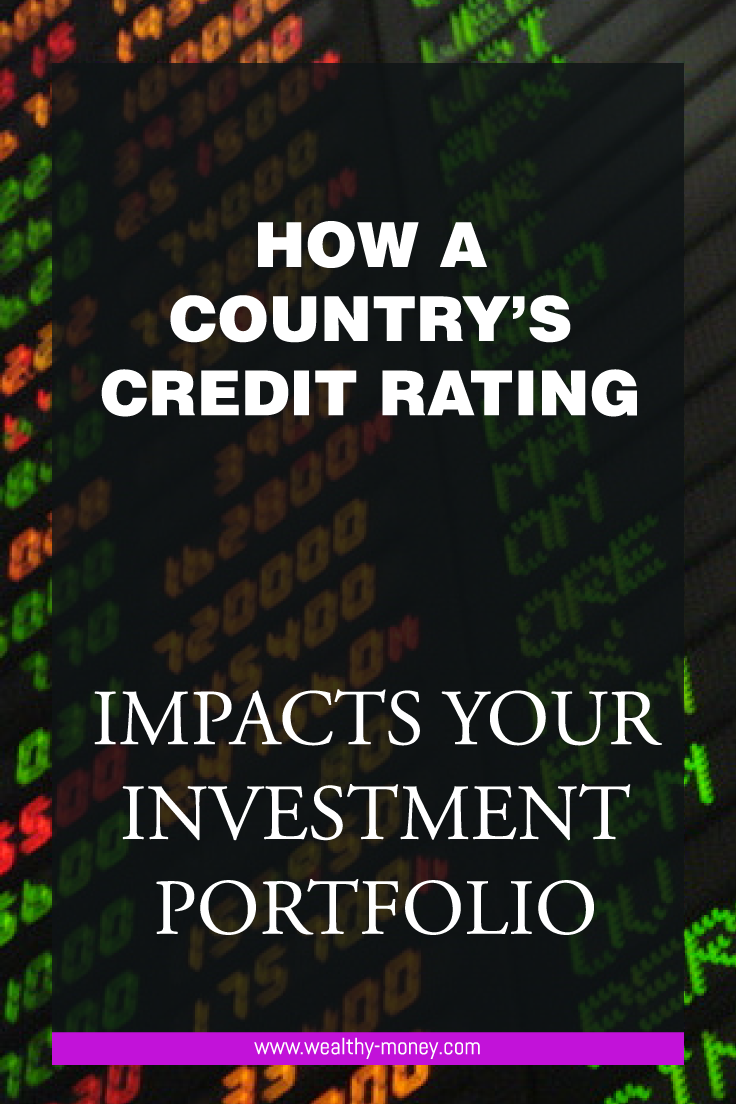Investments 101: How a Country’s Credit Rating Impacts Your Investment Portfolio
A few weeks ago in the Money Magicians group on Facebook, I started the #FinancialFriday talks where we talk about economics and investments and have started sharing all that on the blog.
Last week South Africa was downgraded to junk status and I think it’s important to know what that means in terms of investments and your portfolio.
What are government bonds?
Government bonds are loans that you make to the government. Yes, we can borrow money to governments in various parts of the world.
They issue a paper to you and ask you to buy it at a set price and then they give you the paper which says they agree to pay you an interest rate over X amount of years and also buy back the paper at a higher price at the end of that period.
So imagine the government needs $1,000,000 - they decide to issue 111 of these papers valued at $9,000 and say anyone can buy them and in return they'll pay everyone that buys them 3% interest ($270) every year for 10 years and after 10 years they'll buy back that paper for $10,000.
Sweet right?
Risk and government bonds
There's a direct co-relation (relationship) between risk and rate of return on investment: the higher your risk, the higher your rate of return.
Stocks (shares) are considered high risk, because companies take a lot of risk, the competition on the market is high and companies go bankrupt no matter how big.
At the polar end of the risk spectrum we have government bonds, which are generally considered low risk because governments are seen as reliable; unlike companies governments can always tax people to make money and meet their financial obligations.
So in an ideal world borrowing money to governments is considered the safest thing you can do as an investor because governments often pay back their debts.
how do country ratings impact on your investment portfolio?
As I mentioned earlier, South Africa got downgraded to junk bond status (I don’t agree with this rating at all).
Bond ratings are the investment community's way of evaluating a country's risk, which has many implications for you as an investor.
When a country is evaluated as being junk status, it means the country is a high risk and there's a high possibility it'll default (never pay back its debts and its government bonds) so investors demand a higher interest rate on their bonds.
So next time the government issues bonds, investors will say, “No, you’re a high risk so we can no longer accept 3% interest rates, we now want 5% or 7%.”
This means the government has to pay more interest and the money to pay that interest will come from taxpayers.
And because interest rates on bonds have now gone up, bank interest rates in the country will also go up.
Suddenly our interest rates on mortgages go up, so it’s more expensive to buy houses, and interest on borrowing money goes up, which means you owe the banks more or you just can’t pay the bank.
This creates an overall economic problem, because people can't access credit, so they spend less on things like groceries and cars etc.
And that means companies start losing money and they lay off people, and as people get laid off, they spend even less and eventually companies start reporting losses and profits fall.
And because these companies are losing profits, share prices lose value and because you've invested in these companies, your investment portfolio loses value. And this includes your pension funds and your retirement annuities.
So even in economics everything is interconnected. All these international events impact our lives.
Let me know your thoughts in the comments section below.
Enjoyed the blog post?
Get your FREE access to the guided breathwork meditation






